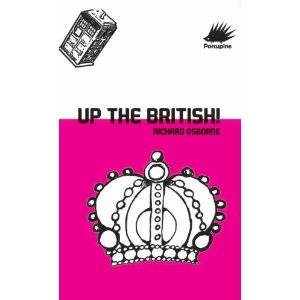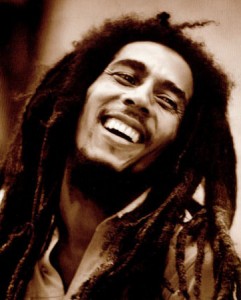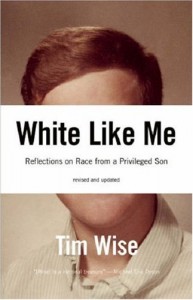Richard Osborne ‘Up the British’ – tweet summary and quotes
- May 26th, 2011
- By agentofchange
- Write comment
Right, well summarising Tim Wise’s White Like Me in 15 tweets went reasonably well, so I figured I’d try something similar for another very useful book: ‘Up the British’, by Richard Osborne. This book is a must-read for anyone interested in the concept of ‘Britishness’ and British identity. Here is the summary I tweeted earlier. That’s followed by some of the best quotes from the book.
- The ideological defence of the British Empire was always based on the idea of the racial, cultural and moral superiority of the British.
- The empire fostered the British psyche in ways that still shape our reactions, thoughts, myths and means of thinking about ourselves.
- The idea of Britishness is a deliberately constructed brand devised to fool workers into identifying/uniting with their class enemies.
- The national culture allowed the British to unite across class lines and shoulder the “White Man’s Burden.”
- Trying to understand Britain without understanding the empire is like trying to understand the US without understanding slavery.
- Britishness has been a highly conflicted identity since the colonies proved they were much better off without British rule.
- The sense of superiority instilled in the white working class during times of empire is manifested now in terms of rising fascism.
- British are addicted to nostalgia – looking to a perfect time when our superiority was beyond question. Meanwhile we ignore the real history.
- The aristocratic arrogance and bizarre traditions of the Royal family help reaffirm Britishness, and therefore the Royals are very popular.
- Expansion of British Empire was based on naval strength, thus the pomp and glory of the Navy features highly in British tradition.
- We have myths (like Francis Drake being a great guy) that, through endless repetition, become collective memories.
- The fantasy of the idyllic British village grows stronger, even as new hypermarkets are constructed at an alarming pace.
- Thatcher appealed to Britishness whilst selling off the state’s assets to multinational corporations.
- ‘Tolerance’ is part of the British identity, but strangely it doesn’t extend to immigrants, Muslims or radicals.
- Britishness includes a profound distrust of immigrants, yet immigrants have been essential to Britain’s cultural and intellectual development.
- Immigrants are feared, as they threaten the fantasy of ‘Little England’, and of course because of the ingrained belief that they are inferior.
- Britain is one of the most unequal societies in the western world but its self-image is one of fairness and contentment.
- Britain is a repressive society, increasingly reliant on hi-tech surveillance & armed police, and yet its self-image is freedom & democracy.
- Churchill fulfils the national need for a strong hero figure. Nobody seems to care that he was a rabid Tory, racist and hater of the working class.
- Underneath the national identity, there is an underlying subdued class war that’s brought to light only occasionally – eg Chartists, General Strike, Miner’s Strike.
- A new culture needs to be built by digging into the past, confronting the demons, giving up racism/supremacy, and finding a place in the world.
Quotes from the book:
“The rise of political correctness as a term of catch-all political abuse is a symptom of a profound fear of contemporary change and of nostalgia for the past, when everything was sensible and sorted, and women knew their place (along with the ‘coloured brethren’)”
“Immigration and refugees can quite conceivably be seen as the motor of cultural and intellectual energy in the British experience over the centuries, so the supposed failure to deal with immigration is rather an odd idea.”
“We have been invading Afghanistan for at least 150 years, on and off, and the net result has generally been rather a lot of dead people on both sides and not very much political correctness or cultural advance.”
“The fantasy of a rural Britain, of cute little villages where everyone knows everyone, is so strong it seems to obliterate even the vaguest sense of reality in those who should know better.”
“The history of the politics of Britishness, and of its mythic thinking, is rooted in our history, as everyone agrees, and that history is one of Empire, of domination, and of, if one dare use the word, exploitation.”
“Tolerance was nowhere to be seen in the relations between the classes in Britain, except when the lower orders were needed to go off to war and die in their thousands, in which case much was made of their chummy and cheerful Britishness.”
“When the British aren’t being rude about foreigners they like to moan about their neighbours; indeed moaning is probably one of the key attributes of the British.”
“The difference between stories and history is that the former begin ‘Once upon a time’ and the latter begin ‘In the time of'”.
“From children’s comics to television repeats and endless film epics, the repetition of these stories builds collective memories, things that have psychic depth without any necessary factual basis. As Orwell observed, the endless repetition of stories turns fantasy into fact, and, like other addicts, people find it very hard to wean themselves off the stuff”
“That the royal family are basically German, aristocratic and in-bred never seems to bother anyone, nor the fact that the idea of royalty is patently absurd, nineteenth-century and inimical to democracy.”
“It is interesting to note how often poetry was the medium in which ideas of Britishness were expressed, a medium best suited to mythological and abstract ideas, and a medium not bound by fact or history.”
“You can take the colonies out of the Empire but you can’t take the Empire out of the colonisers.”
“This is precisely the ideology of imperialism, based in a notion of British identity as racially, culturally and morally superior. The combination of piety, pomp and the accepted necessary use of violence in order to further the aims of the British Empire gives a clear definition of Britishness that is, ultimately, racist and self-reflexive, as well as self-delusional.”
“Ireland was ruled by the British with a rod of iron for at least 800 years and was the epitome of poverty, disease, forced emigration and backwardness … The Irish eventually forced independence through armed struggle, and within sixty years became the Celtic Tiger, one of the fastest growing economies in the West with extremely high levels of education. Likewise India was ruled and civilised by the British for nearly 300 years and was backward, poverty stricken and disunited. After forcing out the British, who blithely divided up the area into unviable entities, India has turned itself within fifty years into one of the fast growing economies in the world and a potential superpower.”
“What on earth children gain from ploughing through arcane and verbose Shakespeare verse, only to discover that what is being said is that all women are mad, dangerous or feeble, or beautiful but dangerous, escapes even cursory examination.”
“When Churchill wrote, or re-wrote, the history of the British he did it in such a way that all the complexity of regional, ethnic and class war was ignored and, most importantly, the vital history of scientific, technological and industrial development was hidden behind the pomp of warfare and coronations. What a bunch of upper-class lunatics did in a cavalry charge really does not compete with the transformations of society that were brought about by scientific analysis, technological insight and organised industrial production.”
Lenin: “The Labour Party is a thoroughly bourgeois party, because, although made up of workers, it is led by reactionaries, and the worst kind of reactionaries at that, who act quite in the spirit of the bourgeoisie. It is an organisation of the bourgeoisie, which exists to systematically dupe the workers.”
“Historically the construction of the idea of Britishness rests on the way in which, as an identity, it overrides all other loyalties or realities of social existence thereby generating a cohesion of all peoples, united in values and outlook.”
“The contemporary Royal Family are clearly rather dim, rather racist and completely unreconstructed in their attitudes to the world and to the lower orders; yet they are staggeringly popular.”
“Imperialism infests the soul and is a difficult drug to give up, as the Americans are currently discovering; giving up the historical memory is proving even harder for the British.”
“Hero worshipping, like celebrity gazing, is a common activity in popular culture, but as the basis for a civilised society it leaves quite a lot to be desired and is really arrested development in psychological terms.”
“The British addictions to heritage, nostalgia, distrust of foreigners and Europe, combined with anti-intellectualism, petty class snobbery and love of humouring themselves at their whimsical ways can only really be described as a mild form of psychosis.”
“With their ‘there is nowhere to hide’ slogan the TLA scours the country looking for evil criminals who watch television without having paid the licence fee. In hi-tech vans with massive databases at their fingertips these custodians of the BBC are ceaseless in their vigil to protect the rights of the government to produce drivel on television and force people to pay for it.”
“TV is full of the double-think that pervades contemporary Britishness. Indeed, reality television allows the middle class entrepreneurs who run it to do their two favourite things; to make lashings of money and to take the mickey out of the ill-educated working classes while doing it.”
“It is Thatcher’s unrestrained neoliberalism that quite arguably led to the decline of most things that could be seen as British.”
If you want to read the whole book (it’s pretty short – only about 140 pages), here it is on Amazon UK.



